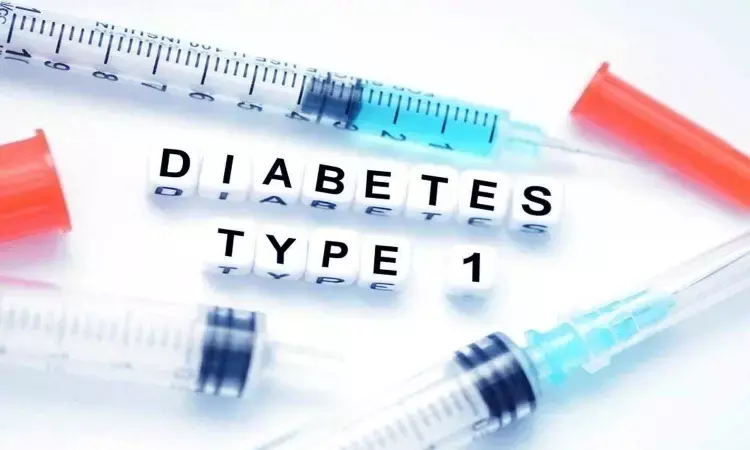- Home
- Medical news & Guidelines
- Anesthesiology
- Cardiology and CTVS
- Critical Care
- Dentistry
- Dermatology
- Diabetes and Endocrinology
- ENT
- Gastroenterology
- Medicine
- Nephrology
- Neurology
- Obstretics-Gynaecology
- Oncology
- Ophthalmology
- Orthopaedics
- Pediatrics-Neonatology
- Psychiatry
- Pulmonology
- Radiology
- Surgery
- Urology
- Laboratory Medicine
- Diet
- Nursing
- Paramedical
- Physiotherapy
- Health news
- Fact Check
- Bone Health Fact Check
- Brain Health Fact Check
- Cancer Related Fact Check
- Child Care Fact Check
- Dental and oral health fact check
- Diabetes and metabolic health fact check
- Diet and Nutrition Fact Check
- Eye and ENT Care Fact Check
- Fitness fact check
- Gut health fact check
- Heart health fact check
- Kidney health fact check
- Medical education fact check
- Men's health fact check
- Respiratory fact check
- Skin and hair care fact check
- Vaccine and Immunization fact check
- Women's health fact check
- AYUSH
- State News
- Andaman and Nicobar Islands
- Andhra Pradesh
- Arunachal Pradesh
- Assam
- Bihar
- Chandigarh
- Chattisgarh
- Dadra and Nagar Haveli
- Daman and Diu
- Delhi
- Goa
- Gujarat
- Haryana
- Himachal Pradesh
- Jammu & Kashmir
- Jharkhand
- Karnataka
- Kerala
- Ladakh
- Lakshadweep
- Madhya Pradesh
- Maharashtra
- Manipur
- Meghalaya
- Mizoram
- Nagaland
- Odisha
- Puducherry
- Punjab
- Rajasthan
- Sikkim
- Tamil Nadu
- Telangana
- Tripura
- Uttar Pradesh
- Uttrakhand
- West Bengal
- Medical Education
- Industry
One-Hour OGTT as accurate as two hr OGTT for diabetes detection, finds study

USA: A 1-hour oral glucose tolerance test (OGTT) is equally effective as a 2-hr OGTT for the prediction of type 1 diabetes (T1D) with minimal risk of missing a T1D diagnosis before the next visit, suggests a recent study in the Journal of Clinical Endocrinology & Metabolism. The findings will do away with the need to perform time-consuming and costly 2-hour OGTTs.
After the identification of islet autoantibody-positive individuals, it becomes important to predict the patients at the highest risk of T1D. A metabolic risk score obtained from 2-hr OGTT data, the Diabetes Prevention Trial-Type 1 risk score (DPTRS) can help in the accurate prediction of T1D.
Kimber M Simmons, University of Colorado School of Medicine, Aurora, CO, and colleagues aimed to determine whether a risk score derived from 1-hour OGTT data can predict T1D as accurately as the Diabetes Prevention Trial-Type 1 risk score (DPTRS). Secondarily, they evaluated whether a 1-hour glucose value can be used for diagnostic surveillance.
The researchers modified the DPTRS to derive a 1-hour OGTT risk score (DPTRS60) through the use of 1-hour glucose and C-peptide, dating C-peptide, age, and BMI. Prediction accuracies of DPTRS60 with DPTRS in Diabetes Prevention Trial-Type 1 (DPT-1) (n=654) and TrialNet Pathway to Prevention (TNPTP) (n=4610) participants were determined through the use of areas under receiver operating curves (ROCAUC). Negative predictive values (NPV) for T1D diagnosis were derived for 1-hour glucose thresholds.
Key findings of the study include:
- ROCAUC for T1D prediction 5 years from baseline was similar between DPTRS60 vs. DPTRS (DPT-1: 0.805 and 0.794; TNPTP: 0.832 and 0.847, respectively).
- DPTRS60 predicted T1D significantly better than 2-hour glucose.
- A 1-hour glucose &180 mg/dl had a similar NPV, PPV and specificity for T1D development before the next 6-month visit as the standard 2-hour threshold &140 mg/dl (both ≥98.5%).
"1-hour and 2-hour oral GTTs show similar accuracy in predicting T1D," concluded the authors.
The study, "One-Hour Oral Glucose Tolerance Tests for the Prediction and Diagnostic Surveillance of Type 1 Diabetes," is published in the Journal of Clinical Endocrinology & Metabolism.
DOI: https://doi.org/10.1210/clinem/dgaa592
Dr Kamal Kant Kohli-MBBS, DTCD- a chest specialist with more than 30 years of practice and a flair for writing clinical articles, Dr Kamal Kant Kohli joined Medical Dialogues as a Chief Editor of Medical News. Besides writing articles, as an editor, he proofreads and verifies all the medical content published on Medical Dialogues including those coming from journals, studies,medical conferences,guidelines etc. Email: drkohli@medicaldialogues.in. Contact no. 011-43720751


